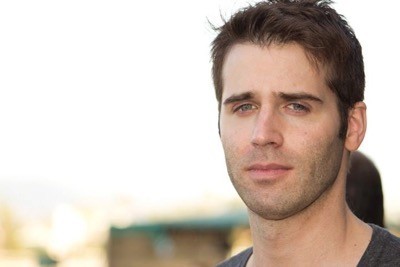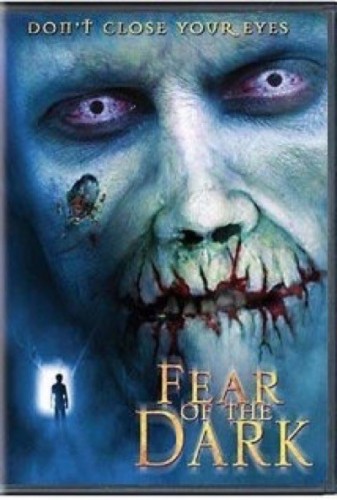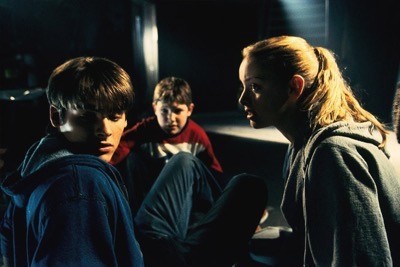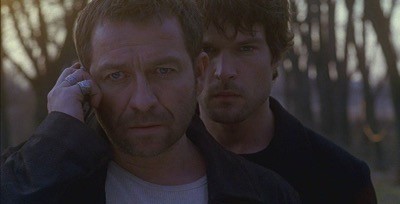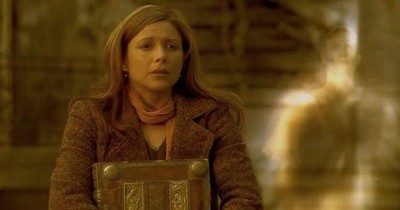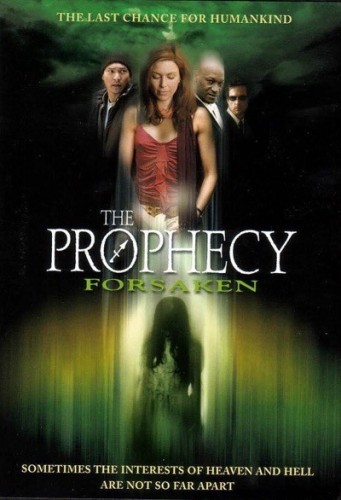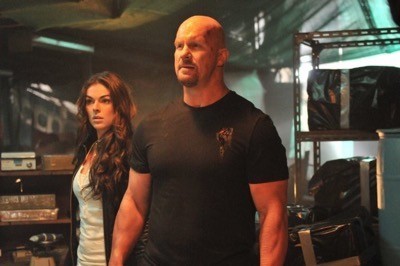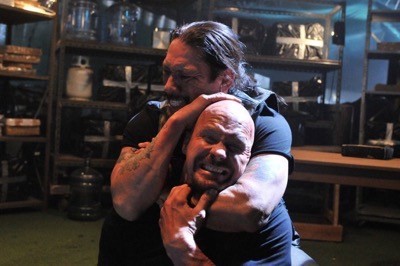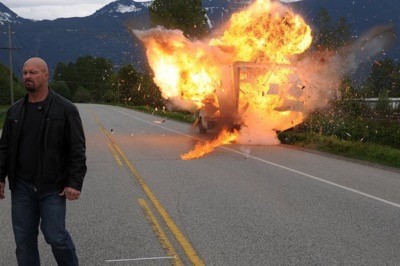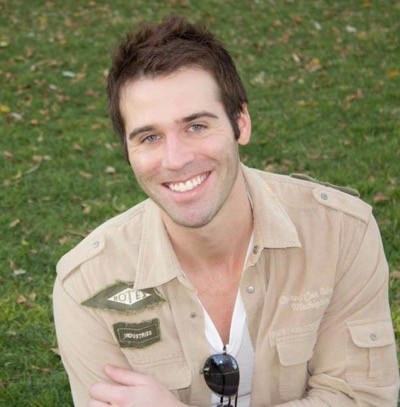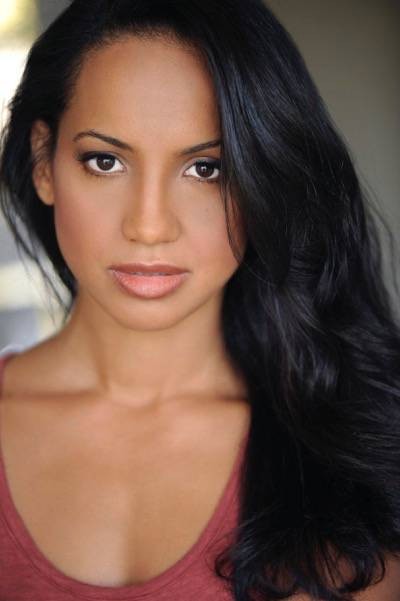On The Rise With… John Sullivan! Hear How John Went From Struggling Writer To Working With Disney And Nickelodeon!
For this weeks On The Rise With… Mike is talking with writer John Sullivan. First off, I think that for all of the aspiring writers out there, there’s a lot of great tips and insight in this interview. It’s hard to break into showbiz, whether you’re an actor, a set decorator, or best boy, but I think writing might be the most difficult and the most rewarding.
Check out On The Rise With… John Sullivan below!
______________________________________________________________________________
On The Rise With…John Sullivan
This week’s interview is with prolific writer John Sullivan, a talented, hard-working screenwriter who cannot and will not fit himself into one genre box. To date, he’s sold and had produced films in the horror, action, and family adventure genres…and that’s just the tip of the iceberg. Read on to see how John went from a struggling writer with a little straight-to-DVD horror film to his name, to a Disney and Nickelodeon Studios paid writer…
Michael Marcelin: When did you first realize you were a storyteller?
John Sullivan: Back in high school, I wanted to be a novelist…but I discovered early on that writing a novel takes a long time. I mean, they’re like, 300, 400 pages. But I loved movies. I saw the movie “Speed”, and, when I watched it, one of the things I noticed in the opening credits sequence is ‘Written by Graham Yost’, and I said “Wait! Someone wrote that movie! Why can’t I just write a movie?” So I got inspired by “Speed” and decided to start writing movies.
MM: What was the first screenplay you remember writing?
JS: My parents had an archaic computer. It wasn’t even a Windows computer…we’re talking 1992 or something like that…and I wound up writing some really terrible, horribly formatted scripts. I even wrote a script that was 200 pages. But the first film that I wrote was called “Cannibal”…and it was this $100 million movie about a cannibal epidemic in New York City. It pre-dated “28 Days Later”, by the way. I never did anything with it…it’s just on my parents’ IBM desktop. That’s how old I am.
MM: (laughs) I had one too, man. Black floppy discs!
JS: So that was my first script. I wrote other stuff. I wrote a movie called “Criminal Moves”, which a lot of screenwriters…young guys, when they start out, in my opinion and experience…write movies where they’re the lead character and they’re awesome. So this movie was about this bad ass ex-con who gets bailed out of jail to rescue two beautiful teenaged blonde girls who were kidnapped…and he’s hired by this oil magnate…it just made no sense. It was like a teenage fantasy kind of thing. And at the time, my mom was working on Kidsday, which is the kid’s version of Newsday (a big Long Island/NY newspaper), and she had interviewed the two twins from “Sweet Valley High”. Now, in the back of my head, I’m like, “If I could just get this to the two twins from ‘Sweet Valley High’, then my character can rescue them!” This is 14 year old John Sullivan. So I wrote that script, and it was garbage…it was mostly garbage for awhile…I just loved the fact that I could write a movie. It was a lot easier than writing a book. And once I got to college, I got a little better. I got Final Draft, and that helped a lot, in terms of formatting. Because prior to it, it was all “tab-enter-tab-enter-space-space-space-tab-enter”. So once I got Final Draft, it was awesome. I got a little better, because once the internet kicked in, I was able to read more scripts…things that had sold, or things that were floating around…even older scripts. I was able to read them and figure out how they looked, and not only that, but what sells…what is a successful screenplay. I know writing a 145 page drama about your personal life is not a way to sell a spec script. And I did that as well…but I learned early on, that’s not the way you make money.
MM: How did you get your first break with “Fear of the Dark”?
JS: “Fear of the Dark”…it was technically my first break, but it didn’t really help me in terms of gaining a career. What it did was inspire me to continue…it proved that I could make money writing stories. What happened with “Fear of the Dark” was, I was 21 years old and I was working as the office manager for the Gersh Agency in New York. Mainly, my job was changing light bulbs, making coffee, printing out scripts…PDFs were kind of new at the time…so I actually didn’t have much to do. I was sitting at the desk all the time, and I had access to Final Draft…I had access to the printer…and not only that, I had access to the mailroom. So what I did, I wrote this movie largely on the train, on an archaic, horrible laptop…and I had gotten inspired by the Iron Maiden song “Fear of the Dark”, which is something I really loved. I was like, “I should write a movie about a kid who’s afraid of the dark! It’s such a great concept! Maybe he and his brother are trapped in their house in the middle of a blackout…the kid’s afraid of the dark, and the brother isn’t…but the brother slowly becomes afraid of the dark as well.” And that’s the concept I went with. I wrote it for a month and a half, commuting from Long Island to New York City. And then, what I would do…(laughs)…I took the script, printed it out, spell-checked it, and sent it to every single production company that I had in my contacts at Gersh. I literally printed it up, put the Gersh agency cover on it, which is completely wrong to do (laughs). I wasn’t repped by them…it was completely mercenary. And I shot-gunned it out to 10-15 production companies, and no one got back to me.
Finally, this Canadian company called me…at work…and they were like, “We really love this. Are you repped by Gersh?” And I said, “Well, here’s the thing. No…I just work here. I just wanted it to look professional.” Then they said, “Okay, well, we kind of want to option it.” And I was like, “Really?” I wasn’t WGA at the time, so they could pretty much pay me anything. They gave me $5,000 for the script. And that’s a lot of money to a kid who has no money…and I had no money at the time. The caveat is that they owned it outright. I didn’t get any residuals or make any more money off of the movie aside from that. But the nice thing is that I pretty much got to keep that $5,000. I didn’t have an agent or a manager or anybody working for me, so I didn’t have to give out percentages. And they made it! Like eight months later! It was crazy. They barely re-wrote me. It was one of the easiest experiences I’ve had. So I thought, “I can make okay money doing this”, so I pursued it wholeheartedly. I wound up writing a bunch of different specs. But that’s what inspired me to start writing more. I blew all that money on booze and CDs.
MM: (laughs) As anyone our age, at that point, would do.
JS: Oh yeah! I was 21! You don’t give a 21-year-old $5,000!
MM: Not at one time! What was your next project?
JS: The next project I had was a script called “Rapid”, which was pretty much “Speed” in an armored car. I met a manager named Brooklyn Weaver, who later started Energy Entertainment, and he was a new manager at the time. Back in the day, it was easier to email query managers and agents…you can’t do it anymore…but at the time, you could find managers fairly easy…and sometimes they got back to you, and sometimes they didn’t. But Brooklyn Weaver got back to me based off of “Rapid”. So I talked to him, and he loved the script, and had a first-look deal with Neal Moritz at Original Film, who produced “The Fast and the Furious” and “XXX”…people driving in fast cars movies…and we did some development on it. He walked it in to Neal Moritz, and was like, “This is your next movie”. Neal liked it but he had one note…his only note: “He spelled glock wrong”. I spelled it “gloc”. So I was like, “All right” (laughs). Sony ended up buying it for ridiculous money, and that’s how I started working.
The funny thing with that story is, this all happened while I was still working at Gersh. One of my jobs there was to deliver copies of Variety and The Hollywood Reporter into the agents’ inboxes…both talent and literary. I told no one I had sold a script…I just put it in their inboxes, then sat down and waited for my phone to start ringing. I had agents go, “Is this you?” I was in there…it had all the details…how much it was bought for, the plot line, and even made reference to the Gersh Agency. It was definitely an interesting experience. I mean, I wanted to keep my job…I wanted to stay there, because it was a steady paycheck. And when you sell a script, you don’t get paid right away. It takes a couple months. But the head of the literary department took me aside and was like, “Hey…so…we’re really happy for you and everything…have you thought about representation?” And I was like, “Yeah…I just don’t really want a rep right now. I don’t need an agent at the moment.” And he said, “Yeah…so…have you thought about us?” And I said, “It’s not really what I’m looking for…” It was like something out of “Office Space”. And he goes, “Yeah…so you kind of need to quit…” And I was very nicely forced out of my job. I was making more money on paper than some of my bosses (laughs)…and I wound up leaving. But everyone was cool. It had to happen…I understood it…I got that. And I just lived in New York permanently and kept on writing and writing. I didn’t really know what to do. I wasn’t told to move to L.A. immediately, but that’s probably what I should have done. You know, if you’re going to take meetings, you had to be present in L.A., but I didn’t know that…I was young…a kid.
MM: And your next projects were a pair of straight-to-DVD sequels to the hit “The Prophecy” series. How did that come about?
JS: So my college friend worked at Dimension as a creative exec, and he called me up and said, “Dude, you’re in Variety! Do you want to come in and pitch on stuff?” I’m like, “Yeah, I want to come in!” It was down the block from where I lived. So I went in, and it was cool, because they had just done a couple of “Halloween” movies and they were known at that time for horror films…and I really wanted to do more horror movies. But I walked in there and I met with one of the senior execs and I talked to them about “Rapid”, which was hot at the time, and they put a few pieces of material in front of me. One of them was “Total Recall”, which they owned at the time….”Rambo”, another they owned at the time…”Mimic”, and “The Prophecy”. And I looked at them, thinking, “Wow…this is ridiculous. This is like Thanksgiving for me, as a writer”. And in the room, I was not prepped for any of these…I didn’t know they were going to offer me this stuff. They asked, “What do you think? Do you have a story for one of these?” For “Total Recall”, I pitched them a prequel, about how the technology was created. I thought it was pretty smart, and they liked it, but I knew I ultimately wouldn’t get that one. And then “Rambo”, I pitched “Rambo in the Hood”…in South Central. They liked it, but ultimately, I didn’t get it. With “Mimic”, I pitched an alien version of it, but ultimately, I didn’t get that. And then with “The Prophecy”, which, ironically, was the one property I was not familiar with at all (laughs)…I was like, “Is that the one with Christopher Walken as a bad angel?” So I told them I had to think about that one, and I thought I was going to get the other four…but they came back to me and said, “Why don’t you take a shot at ‘The Prophecy’?”
I had two spec scripts I had written a couple years prior that were unrelated to “The Prophecy” movies, but had supernatural and Satan references in them…so I called up my contact over at Dimension and said, “I have two scripts already written that could fit as ‘Prophecy’ 4 & 5.” So I sent them over, and they were like, “These are perfect. Can you turn them into ‘Prophecy’ movies?” And that’s what I did. So when you watch “The Prophecy” 4 & 5…neither one of them were supposed to be “Prophecy” movies (laughs). I retrofitted it, and the director rewrote me…and they actually turned out better. They’re regarded as some of the better “Prophecy” sequels. People seem to like them. They’re like “The Bourne Identity” with angels. After that, I moved to L.A.
MM: And what prompted you to finally make the move?
JS: It’s easier to be in the room with executives and producers than talking to them on the phone. But it was mainly that I needed to take my career to the next level. I mean, it’s nice to make direct-to-DVD sequels and live off of money you made from a spec that didn’t even get made, but you have to move to L.A. I mean, it took me a little while…I needed to sow my wild oats…but I made it out here. When I got here, I lived in a closet. That’s not an exaggeration. I lived in a closet, off of Laurel Canyon. It was all I could afford at the time. I was okay financially, but I didn’t want to spend a lot of money getting an apartment, where, you know, in Hollywood or West Hollywood, an apartment could run you $1200 – $1400 a month. My manager and I were out at a restaurant one evening, and we were trying to find the next big thing…the next “Night at the Museum”. And my mom had just talked to me about her middle school’s science fair, so I’m like, “That’s a cool title for a movie. ‘Science Fair’. What can I do with that?” So my manager asks me what my biggest idea was, and I told him, “I have this thing called ‘Science Fair’.” And he says, “Dude, that’s dope. That’s awesome. It’s ‘Night at the Museum’ at a science fair.” And I’m like, “Yeah, that’s pretty much it”. So, you know, the tornado and the Coke bottle…the ant farm…all the crap you would see at a Midwest science fair…comes to life, and gets big. So I wrote the script in like, three weeks, and we sold it to Disney. Disney picked it up, and I did my time on it, then they put another writer on it…then it moved over to MGM. So MGM has it now, I think. It’s one of those mutating things. I’m always in the know about it, but I don’t actually know what’s going on with it. But we have some really great producers, including my manager. Fingers crossed that we’ll get it done.
MM: And are you with Brooklyn Weaver now?
JS: I’m actually with Jake Wagner at Benderspink now, but I still have a really good relationship with Brooklyn.
MM: And your next project was a short called “Saturday”.
JS: Yeah, I produced that. My producing partner at the time, Ryan Tuchman, and I, pulled some money together, and we made it for $10,000. We had three locations that we knew we could get for free…three bars…because Ryan, who was a party promoter at the time, knew the owners and said “Look, we can shoot in the afternoon…no one’s going to be there…and we could shoot it for free.” And I was like “Great!” It’s this total Roger Corman thing…write the movie around the location that’s available…and that’s what we did. So we made up a story that was pretty much a rip-off of “Swingers”: around three guys, going out for the night to three different bars, meeting three different women, and following them from bar to bar. It was not the most amazing movie in the world. But we won an award at the New York Independent Film Festival…and I don’t know why it happened? (laughs) But it did. And we also got distribution in France. So people in France have seen the movie. We don’t even have a copy of it (laughs). But it’s on my IMDb, and I’m proud of it. My producing partner and I act in it for like, five minutes. It’s fun. I wish it were on YouTube, but the trailer’s there, so you can see the trailer.
MM: Then there’s “Recoil”. How did you come up with that idea, and how did the project get off the ground?
JS: “Recoil” happened because I really wanted to do “High Plains Drifter”. I love Clint Eastwood…I love the Clint Eastwood spaghetti westerns…and I wanted to do a modern retelling of that story. So I wrote it on a lark. My manager, Jake, wanted me to do a gritty actioner, and I said, “I got a pretty good idea for one. It’s like a western with bikers.” And he said, “That’s cool…go write that.” We had Randy Couture attached, initially. But financing fell through…one of those multiple producers type things…and it sat on the shelf for years. I didn’t know what to do with it. It was a simple movie…a $5-$10 million dollar movie…about a guy beating people up for 90 minutes. I tried to bring more to the table… more layers and emotion to the movie…and I hope I did that. I wanted whoever ended up in the lead to have some gravity and bring some kind of pathos to it. I know at the end of the day it’s a direct-to-DVD action flick, but I tried to do more with it.
So my manager and I are at a party one night, talking to a couple of producers, and one of the producers mentions to us that he’s looking for a vehicle for Steve Austin…and my manager mentioned “Recoil”. I get a call the next morning, Sunday, from Jake, and I’m thinking “Oh God, what’s wrong?”, and he says, “Yeah, so… they’re going to option ‘Recoil’.” And I was like, “It’s Sunday! No one does business on Sunday!” But that’s what happened. They optioned it…I did a little bit of development on it…and they attached Steve Austin to it…got Danny Trejo and the director on board…and that was it. It was the easiest thing ever. And I have to preface that by saying that doesn’t usually happen. It never does. I took a day to rewrite it…they wanted to cut some of the dialogue so Steve wouldn’t have to do monologues… and they wanted me to switch it from New Mexico to Seattle, WA. That was it. A month later, it was shooting. It came out, got released, and people seem to like it. From what I’ve read, and I’m also biased, “Recoil” is regarded as Steve Austin’s best film so far.
MM: Well it’s always running on cable, and they usually only re-run things heavily if there’s a viewership there for it, I believe. So that’s a testament to you.
JS: That’s cool. That means a lot to me. Because it’s a very pure movie. Like “Fear of the Dark”, it didn’t get rewritten or anything…it was very pure. 99% of it was my voice. A lot of times people like to talk crap about direct-to-DVD movies, but the nice thing about them is that they really don’t get rewritten, because there’s no budget to hire another writer. Now, in terms of selling a movie to Disney, or Sony, they can afford to fire you. But with VOD or DVD movies, they can’t. They’re stuck with your script. The director might make some revisions, but that’s mainly due to what locations may be available at the time.
MM: You’ve also had some recent script sales. Tell me about them.
JS: I have a movie at Millennium Films right now…they did “The Expendables” and “The Mechanic”… they’re pretty much the action film studio at the moment. They picked up a spec I did called “Security”, which is sort of “Assault on Precinct 13” in a strip mall. So it’s very John Carpenter. It’s a small, kind of dark movie…contained. We’re crossing our fingers on some cool, A-list leads. And funny enough, we’ve been talking action for awhile now, but the one thing I’m active on right now is “Boogeyman”, at Nickelodeon, and that’s a really family friendly, fun kids horror adventure. I compare it to “Gremlins”, “Ghoulies”, “Little Monsters”…it’s got that vibe. It’s very definitively 80s. So I’m working on that right now. And Howard Deutch is directing it, who’s working on “American Horror Story” at the moment, and who we know from “Pretty in Pink”, “Some Kind of Wonderful”, “The Great Outdoors”… pretty much every 80s movie that you loved.
MM: Have you ever thought of tackling TV?
JS: TV is notoriously difficult to break into. I worked on a pilot with Lea Thompson attached. I wrote a pilot for SyFy that didn’t get picked up, but I enjoyed working on it. “Boogeymen” is an MOW for Nickelodeon, and I’m hoping it’s a backdoor pilot. Features are my favorite venue, but I’d love to have a good, solid show to run (and get 100 episodes so I get that sweet, sweet syndication money). My first love is movies. But I’d love to have my “24” series.
MM: Who are some of your writing influences?
JS: I’d say I love David Twohy, who wrote “Pitch Black”. David Koep, who wrote “Jurassic Park”. David Mamet is definitely an influence, though you won’t necessarily see any of his work in what I write. But as far as dialogue goes, you can’t do much better than Mamet. In terms of career trajectories, I love James Vanderbilt and Sheldon Turner. Those guys have not necessarily written amazing films, but they’ve written a couple of good films that have done incredibly well. And at the end of the day, this is a business, and I need to pay a mortgage…and those guys paid mortgages (laughs). I really like Scott Frank, Ted Griffin, and I’m going to sound like such a cliché, but Shane Black. No one gets story or dialogue like Shane Black. The guy is a god. And I know this is a hack answer, because every screenwriter says “Shane Black’s the best”…but that’s because he is! I also like Larry Cohen, who’s done a lot of 70s and 80s B-movies. And John Carpenter…I mean, some of his stuff is hit or miss, but when it hits, it’s amazing. I think Frank Darabont is a good writer/director…and if you want a bigger hack answer than Shane Black…of course, there’s Tarantino.
MM: If there was one movie you wish you had written first, what would it be?
JS: “Die Hard” or “Speed”. But more “Die Hard”. There’s a great “Family Guy” joke where the dog, Brian, and Peter go back in time, and they’re climbing through air ducts, and Peter says something like, “Brian, we could write ‘Die Hard’. We could write ‘Die Hard’ right now, and no one would know”. (laughs) But yeah, I would write that.
MM: What’s your favorite genre to work within.
JS: I don’t have a favorite. My favorite genre are just things that speak to me. I like action-thrillers, I like writing family adventures…”Night at the Museum” kind of stuff. I like edgy, family adventures…PG, PG-13 stuff. I love that because I can see that with my kids, and my parents can go see it and enjoy it. I enjoy writing horror movies as well, but they’re harder to sell. If Blumhouse doesn’t pick it up, your movie’s not getting made. I mean, you can get it done independently, but you’re spending months of your life trying to get it financed, if Blumhouse, Dimension, or Screen Gems doesn’t pick it up. That’s who you’re looking at for horror movies. But I love monsters, bad guys, gun fights…I like dark genres.
MM: Is there a type of film you haven’t written yet that you’d like to attempt?
JS: I’d like to write a personal drama. That’s something I’d like to attempt, but I’m not in any position to tackle that yet. But I’d like to write something on the level of “The Fault in Our Stars” or “Whiplash”, which was amazing. I’d like to write something on that level that doesn’t involve guns or shooting or monsters. It’s one of those genres I need to tackle, but can’t quite tackle yet.
MM: What’s something that people would be surprised to know about you?
JS: Despite the fact that a lot of characters in my movies are drug dealers or bad guys and stuff, I’ve never done an illegal drug in my life, and I’ve never shot a gun. I do a lot of research on the internet to make stuff sound legitimate, but my life is much more low key than anything I’ve ever written.
MM: What advice would you give to writers who are trying to get their foot in the door?
JS: There’s two things I can’t stress enough: find and read screenplays…and it’s easy now…there’s no excuse…you can find screenplays online; and get a screenwriting program. I know it’s amateur advice…if you want to be a screenwriter, you probably already have Final Draft or Movie Magic or Adobe Story. Find a job in the industry…get an assistant gig, or a reader gig. Get something on that level so you can just kind of educate yourself about the job and the world. Screenwriting is 50% talent, and the other 50% is knowing how the market and the industry works. Even getting that job where you’re getting coffee tossed on you by Kevin Spacey…that’s education. I mean, it might be crappy…and it usually is…but get an industry job. It can even be an internship that you do one or two days a week. One of the best lessons I learned was working at the Gersh Agency. I didn’t know how to write screenplays…I didn’t know how the industry worked. But it’s important to integrate yourself in the industry. You make friends and contacts there. The last couple of projects I sold was because of contacts I had.
FYI:
Movie: Jaws
Screenwriter: Shane Black
Author: Stephen King
Book: The Stand and Pet Sematary
TV Show: The Simpsons, Seinfeld, News Radio
Food: Pizza
Director: Steven Spielberg, Sidney Lumet
Screenwriting Blog: Bitter Script Reader
If you want to keep up with John’s screenwriting adventures, or engage in film conversations with him, you can do so on Twitter, @johnnyblackout
Share on Facebook


